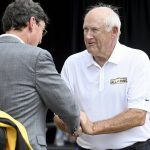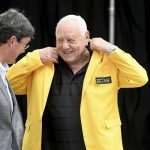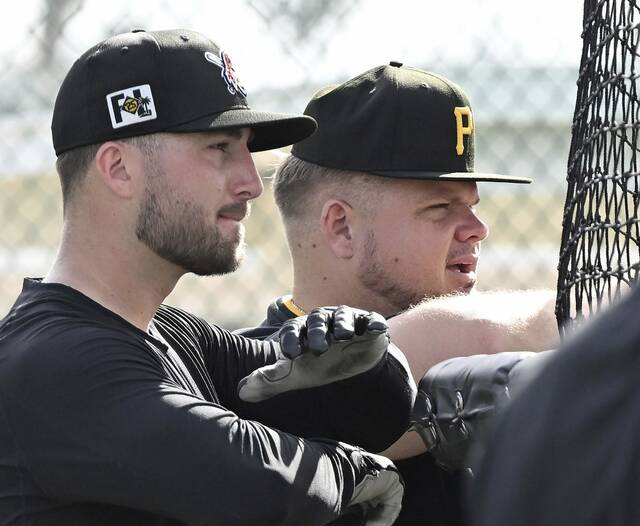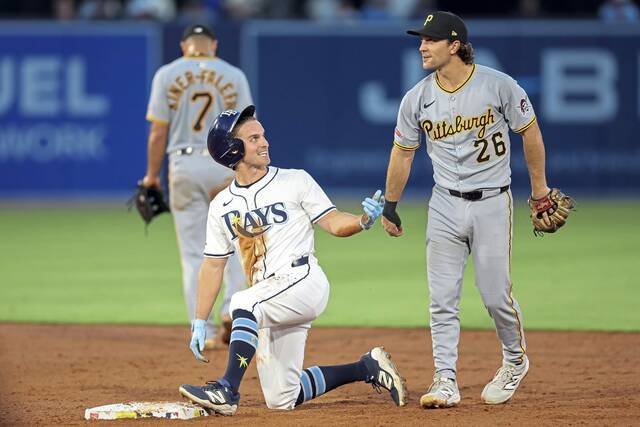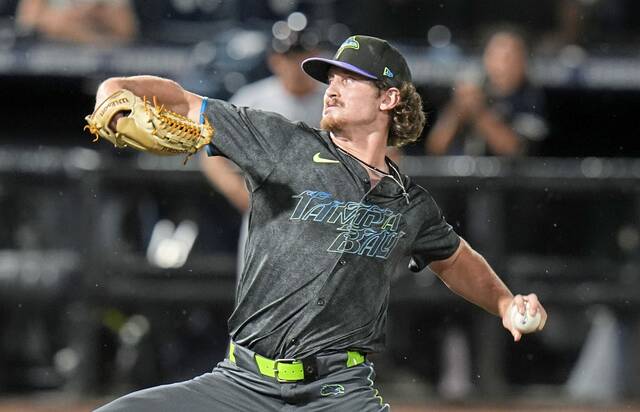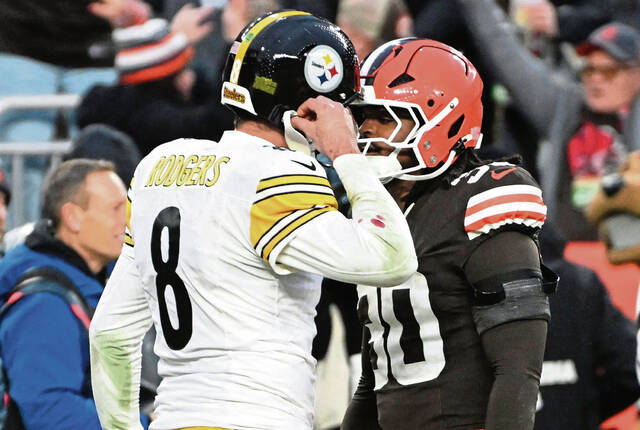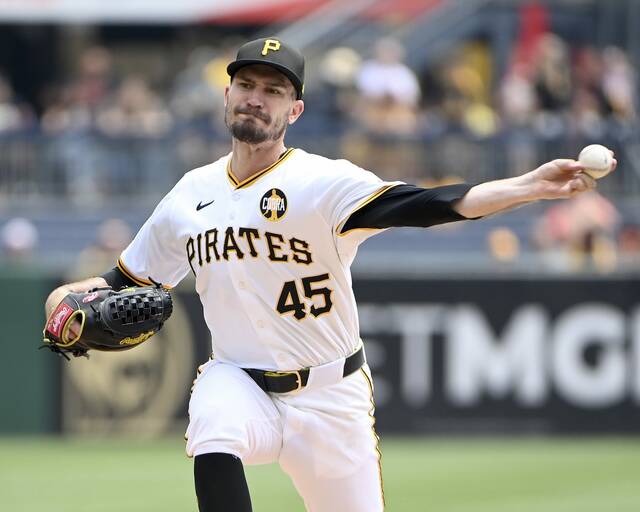In May 1964, a wide-eyed rookie pitcher named Steve Blass entered the Pittsburgh Pirates clubhouse at Forbes Field after being called up from the team’s Triple-A affiliate, the Columbus Jets.
While the Pirates went 80-82 that season, they retained many key players who had contributed to the 1960 World Series-winning club.
Outfielders Bill Virdon and Roberto Clemente remained, as did catcher Smoky Burgess, pitchers Bob Friend, Roy Face and Vern Law, as well as second baseman Bill Mazeroski.
Blass’ MLB career was just taking off in 1964, splitting time as a starter and reliever.
In the years to come, Blass took center stage with the team, honing his craft as a starting pitcher throughout the late 1960s before playing a critical role in the team’s 1971 World Series win over the Baltimore Orioles.
On Saturday, Blass was one of 19 players inducted into the Pirates’ inaugural Hall of Fame.
He was one of three living former players honored, along with Dave Parker and Mazeroski.
Clemente and Willie Stargell, also Blass’ teammates, were similarly enshrined.
Related:
• As Pirates honor inaugural 19-member Hall of Fame class, ceremony disrupted by protesterAll told, Blass spent 60 years with the Pirates organization as a player and later as a broadcaster from 1986-2019.
Of Blass’ countless memories with the Pirates, a special recollection is the treatment he received from his teammates upon breaking out of the minor leagues. Mazeroski, the Pirates’ World Series hero from 1960 whose homer in Game 7 defeated the mighty New York Yankees, was particularly helpful.
“That group of people on the ’64 team when I was a rookie helped me go from being a ballplayer to a major leaguer,” Blass said. “Bill was all part of that. It was just dazzling. You’d been dreaming about it since you were 10 years old. It was everything they said it was times 10.”
By 1964, Mazeroski was considered one of baseball’s premier defensive players. He already had won four Gold Gloves at second base and would win his fifth by the season’s end. He was also an eight-time All-Star.
Mazeroski’s resume made him something of a larger-than-life figure from Blass’ vantage point.
“I didn’t dare talk to Bill the first three months I was there because I knew he was on that pedestal,” Blass recalled.
Mazeroski downplayed his role in bringing younger players such as Blass under his wing.
“You just treat them like they’ve been there forever. That’s all I did,” Mazeroski said. “Just say, ‘Hey, you’re here. Don’t worry about anything, you’ll be all right.’ ”
Mazeroski treated Blass, even in his youth, as an equal, especially when it came time to hit the town.
“You’d take them out to eat once in a while and say, ‘Hey, you’ve got to pay now, too!,’” Mazeroski said with a laugh.
Blass, 22 at the time, was eager to demonstrate his own value to Mazeroski and the rest of the team.
It would not happen overnight.
Blass finished his rookie campaign 5-8 with a 4.04 ERA. He spent the 1965 season in the minors with Columbus before rejoining the Pirates permanently in 1966.
While Mazeroski garnered MVP consideration that year and won his seventh Gold Glove, Blass went 11-7 with a 3.87 ERA.
Blass still had yet to show his full potential, but by the end of the 1966 campaign, he was making progress on his goal of proving himself in the clubhouse.
“The ongoing theme is: ‘I’ve got to validate myself to them that I’m capable of being on a team with them,’” Blass said. “That’s the one thing you want to prove when you want to get up.”
Leading into the 1971 season, Blass had gone a combined 44-28 over the prior three seasons. In 1968, he won 18 games with a 2.21 ERA and earned MVP votes.
Mazeroski played in just 70 games in 1971 but won his second World Series ring with the Pirates, who beat the Orioles in seven games for their fourth championship.
This time, it was Blass who played a lead role, following up a stellar regular season (15-8, 2.85 ERA) with two complete-game performances in the Fall Classic. He allowed four hits and one run in a 2-1 victory in Game 7.
Blass finished second behind Clemente in the voting for World Series MVP.
As Mazeroski’s MLB career came to an end after the 1972 campaign, Blass’ appeared to be blossoming, as he finished runner-up for the NL Cy Young Award, winning a career-best 19 games with a 2.45 ERA.
But soon thereafter, Blass’ playing days came to an end, as inexplicable control issues cut his career short, culminating in his 1975 retirement.
Mazeroski was enshrined in the National Baseball Hall of Fame in 2001.
After Saturday’s ceremony, where the two Pirates legends were reunited once again, Blass paid homage to his former mentor.
“He didn’t say much — still doesn’t say much — but what he said had meaning,” Blass said. “He taught me about the fact that you’re in the big leagues now: no excuses. People don’t care that you didn’t make a play or make a pitch. They want to know why you didn’t. This is the big leagues and not one where you make excuses.”




